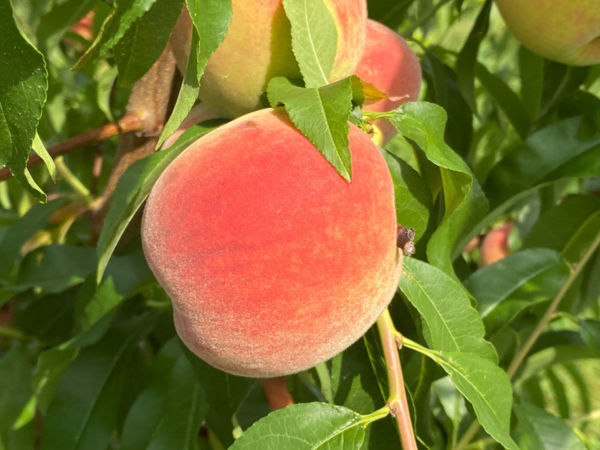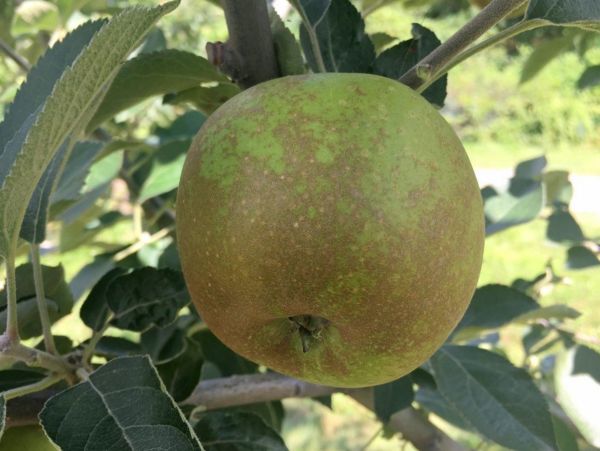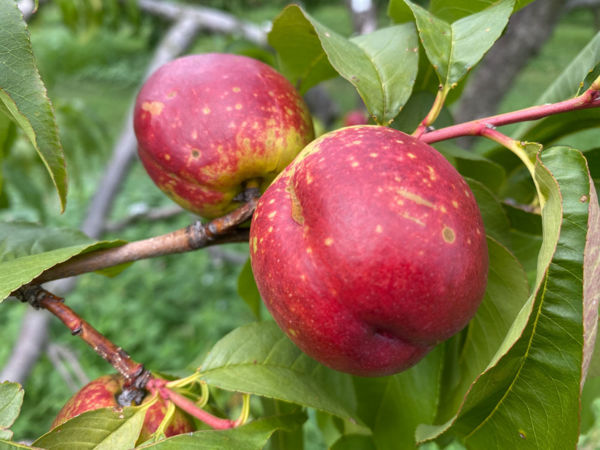An attractive, highly disease-resistant apple, ideal for organic growers.
San Jose Scale
Fruits Affected
Apple, Peach, Plum, Pear, Nectarine, Cherry, Apricot
Also See
Fruit Tree Diseases and Pests: An IntroductionList of Common Fruit Tree Diseases and Pests
San Jose scale is a destructive insect (Quadraspidiotus perniciosus) that probably arrived in America from China in the late 1800's. It overwinters on all types of fruit trees as "scales" on a tree, and in spring the short-lived, winged males emerge to mate with wingless females.
Symptoms
Bark that is gray, crusted, or scaly; reddened tissue beneath the bark; loss of vigor.
Organic Treatments
San Jose scale has natural predators and it is a rare pest in organic orchards. Home growers who encounter San Jose scale should prune out infested areas and consider treating their trees with dormant season oil.
Conventional Treatments
Two well timed dormant oil sprays is your first line of defense. Esteem and Assail are also effective.
Insect Cycle
San Jose scale is a destructive insect (Quadraspidiotus perniciosus) that probably arrived in America from China in the late 1800's. It overwinters on all types of fruit trees as "scales" on a tree, and in spring the short-lived, winged males emerge to mate with wingless females. About a month later, the offspring, tiny live "crawlers," are born (up to 400 over a six week period), which disperse on the tree before they settle down and start feeding. They lose their legs, eyes, and antennae, and develop their protective scale. In warmer climates, several generations are possible in a single growing season.
While feeding, the insect injects a toxic poison into the tree. Look for bark that is ashy grey with a crusted, scaly appearance. If you peel back the bark under an infestation, you will find reddened tissue instead of healthy, green plant matter. Similarly, scale activity on fruit will appear as red-purple spots with a light colored "bullseye" in the center. The tree is injured by loss of sap, and a prolonged infestation can result in lack of vigor, cracking or splitting of limbs, and death of the tree.
For more information, see Cornell's A Grower's Guide to Organic Apples and the Cornell IPM Factsheet on San Jose Scale.
Featured Products
A few things we're loving right now...
A full-flavored, freestone white peach.
One of America's oldest apples, good for storage, baking, and cider.
A widely-grown, large, yellow-fleshed nectarine.












